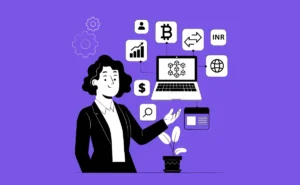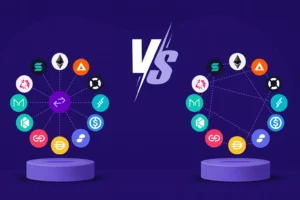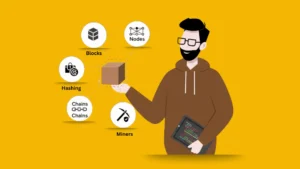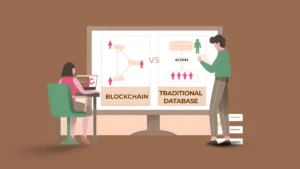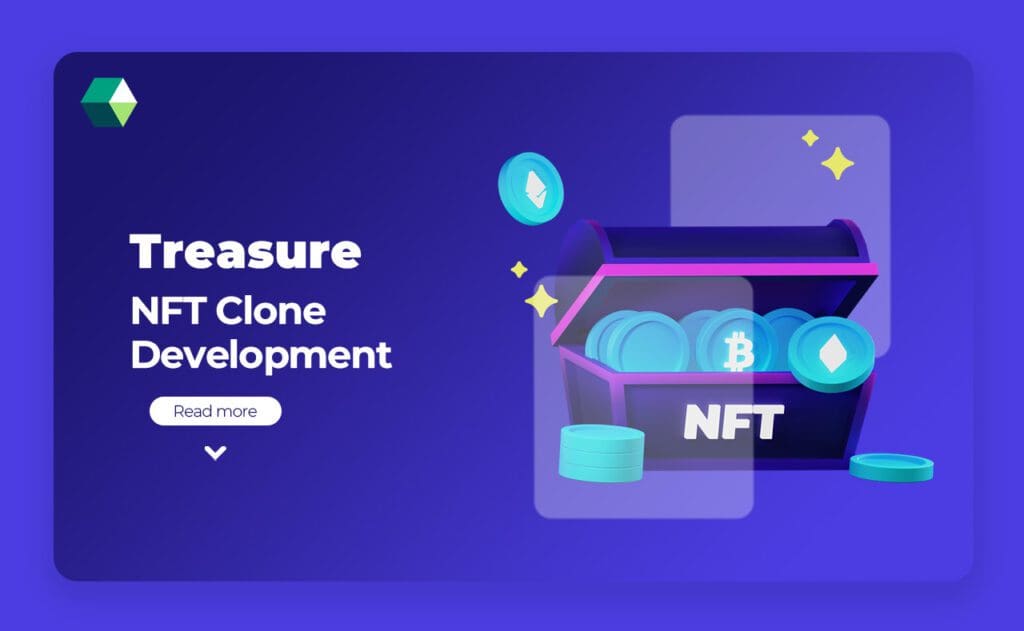
Non-Fungible Tokens (NFTs) have become a big deal in the digital world. These unique digital items represent ownership of art, music, and collectibles. Creating a Treasure NFT Clone can be a great option if you’re interested in jumping into this exciting market. In this blog post, we’ll discuss what Treasure NFT clone development is, why it’s important, and how to do it. We’ll also cover important keywords like NFT marketplace clones, NFT marketplace clone development, NFT marketplace clone script, decentralized nft marketplace, and more.
What is NFT Clone?
An NFT clone is a copy of a popular Non-Fungible Token (NFT) marketplace that lets users create, buy, sell, and trade digital items easily and securely. These clones are inspired by well-known platforms like OpenSea and Rarible, providing similar features but often tailored for specific groups or interests. Using blockchain technology, NFT clones ensure that all transactions are safe and transparent, allowing artists and collectors to connect in the growing world of digital assets. Businesses and individuals can customize these platforms to add unique features and create a user-friendly experience, making it simpler for everyone to join the NFT market and explore digital collectibles.
NFT Clone Development
NFT clone development is the process of creating a marketplace that mimics popular Non-Fungible Token (NFT) Platforms, known as NFT marketplace clones. This process begins with researching what users want and what existing platforms offer. Developers then choose a suitable blockchain, like Ethereum or Binance smart chain, to build the marketplace. The next step is designing an easy-to-use interface that makes it simple for users to navigate the platform.
Key features of nft marketplace clones include smart contracts, which help manage transactions, and the ability to connect digital wallets for safe payments. Users can mint their own NFTs, and buy, and sell digital assets within the marketplace. These clones can also be customized to cater to specific audiences by adding unique features like gamification or community tools. After thorough testing to ensure everything works well, the platform is launched for users to enjoy. Overall, NFT clone development allows businesses to enter the growing NFT market with a platform that is user-friendly and tailored to their needs.
NFT Clone Development Features
NFT Clone Development includes several features that make the platform easy to use and engaging for users. Here are some important features that help create a successful NFT marketplace:
-
User Registration and Profiles
Users can quickly create accounts and set up their profiles. This allows them to manage their digital assets and keep track of their transactions. Having a personalized profile helps users feel more connected to the platform.
-
NFT Minting
This feature allows users to create their own NFTs easily. They can upload digital files like art, music, or videos and define things like rarity and ownership rights. This empowers creators to showcase their work and maintain control over their creations.
-
Marketplace Functionality
The NFT marketplace is where users can buy, sell, and auction NFTs. A simple and user-friendly interface helps users navigate the platform with ease. Advanced search filters and categories make it easy to find specific digital items quickly.
-
Wallet Integration
The platform supports popular digital wallets, allowing users to connect securely and manage their cryptocurrency for transactions. This makes buying and selling NFTs convenient and straightforward.
-
Royalties Management
Smart contracts can automatically handle royalties for creators. Whenever an NFT is resold, the original creator gets a percentage of the sale. This feature ensures that artists can continue to earn money from their work even after selling it.
-
Analytics Dashboard
Users have access to a dashboard that shows their NFT transactions and market activity. They can track their sales, monitor how well their NFTs are doing, and keep an eye on market trends. This information helps users make better decisions.
-
Community Engagement Tools
Features like forums and chat systems allow users to connect and share experiences. This helps build a community around the platform, making it more enjoyable for everyone involved.
-
Admin Panel
An admin panel helps platform administrators manage users and monitor transactions. This system is important for keeping the marketplace organized and ensuring that everything runs smoothly.
-
Multi-Blockchain Support
Some NFT clones can work on different blockchains. This means users have more options for minting, buying, and selling NFTs, making the platform more accessible to a wider audience.
Developing a Treasure NFT Clone
Creating a Treasure NFT clone is an exciting project that allows users to buy, sell, and trade unique digital treasures as Non-Fungible Tokens (NFTs). Here’s a simple guide to help you understand how to develop this kind of platform in an easy and user-friendly way.
-
Market Research and Concept Development
Start by researching the market. Look at existing NFT marketplaces that focus on treasures or collectibles. This will help you understand what works well and what doesn’t. Think about your target audience: who will use your platform, and what features will they find appealing? This step is crucial for deciding how your Treasure NFT clone will stand out.
-
Choosing the Right Blockchain
Choosing the right blockchain for your NFT clone is important. Ethereum is a popular option because it has strong support for NFTs and smart contracts. However, you can also consider other blockchains like Binance Smart Chain or Polygon, which might have lower transaction fees and faster processing times. Pick a blockchain that fits your project’s goals and your audience’s needs.
-
Designing User Interface (UI) and User Experience (UX)
Creating a user-friendly design is key to keeping users engaged. The layout should be easy to navigate, with clear categories for different types of treasures. Include features like search bars, filters, and sorting options so users can find what they are looking for quickly. Make the design fun and appealing, reflecting the theme of treasure hunting with bright colors and engaging graphics.
Developing Core Features
Your Treasure NFT clone should have essential features, including:
- User Registration and Profiles:
Allow users to sign up and create profiles to manage their digital treasures. - NFT Minting:
Enable users to create their own NFTs by uploading digital files and setting attributes like rarity. - Marketplace Functionality:
Set up a marketplace where users can easily buy, sell, and auction their treasures. - Wallet Integration:
Connect with popular digital wallets so users can manage their cryptocurrencies and conduct transactions securely. - Royalties Management:
Use smart contracts to ensure that creators earn a percentage of future sales whenever their treasures are resold.
Integrating Security Features
Security is vital in any digital platform. Make sure to include strong security measures, such as two-factor authentication and encryption, to protect user data and assets. These features help build trust, making users feel safe while using your platform.
Testing the Platform
Before launching, test your Treasure NFT clone thoroughly. Check all functions, including user registration, minting, and transactions. Invite a small group of users to try out the platform and provide feedback on their experience. Fix any issues that come up during testing.
Launching and Marketing the Platform
Once everything is working well, it’s time to launch your Treasure NFT clone. Create a marketing plan to attract users. Use social media, collaborate with influencers, and engage with online communities to promote your marketplace. Highlight what makes your platform unique to encourage people to join.
Continuous Improvement and Updates
After launching, keep an eye on user feedback and market trends. Regularly update your platform with new features and improvements based on what users want. Engaging with your community and listening to their suggestions will help keep their interest and build loyalty.
Top NFT Clone Development Platforms
When you want to create an NFT clone, it’s important to choose the right platform that provides the tools and services needed to build a successful marketplace. Here are some of the best NFT clone development platforms to consider:
-
OpenSea
OpenSea is one of the biggest NFT marketplaces in the world. It allows developers to create NFT clones with similar features. OpenSea has a user-friendly interface and offers extensive resources. Developers can use OpenSea’s API to add custom features and make their marketplace unique.
-
Rarible
Rarible is another popular NFT marketplace that lets users easily create and sell NFTs. It has a community-driven approach, allowing users to have a say in the platform’s decisions. Rarible is open-source, which means developers can customize their NFT clones to suit their needs. It also supports multiple blockchains, giving users more options for minting NFTs.
-
Mintbase
Mintbase focuses on simplicity, making it easy for anyone to mint and sell NFTs. This platform allows developers to create NFT marketplaces for specific themes or niches. Mintbase supports different types of digital assets, including music and art. Its straightforward minting process and easy-to-use interface make it a great choice for new developers.
-
Nifty Gateway
Nifty Gateway highlights high-quality art and exclusive drops. It allows users to buy NFTs using credit cards, making it accessible to more people. If you want to create an NFT clone that focuses on curated collections and artist collaborations, Nifty Gateway could be a good model to follow.
-
Foundation
The foundation is a platform that connects artists and creators with buyers. It emphasizes community and creativity, offering features for interaction and collaboration. Developers can build NFT clones on Foundation that cater to artists looking for a platform to showcase their work.
-
Zora
Zora is a decentralized marketplace that supports creators in minting and selling NFTs. It allows developers to create NFT clones with customizable features while fostering community engagement. Zora focuses on transparency and accessibility, making it a great option for those wanting to create a collaborative environment.
-
BakerySwap
BakerySwap is a platform that combines decentralized finance (DeFi) with NFT trading. It allows developers to create unique NFT marketplaces that leverage liquidity pools and yield farming. If you want to integrate financial incentives into your NFT clone, BakerySwap is a suitable choice.
Why Nadcab Labs for NFT Clone?
Choosing Nadcab Labs to create your NFT clone has many benefits. They have a team of skilled developers who understand the NFT market well, especially decentralized NFT marketplaces . They will help you from the very beginning, turning your idea into a real platform that is easy for users to navigate. Nadcab Labs offers custom solutions, which means they can build your NFT marketplace to fit your needs. Their decentralized approach means your NFT clone will run on a blockchain, making it secure and giving users control. This way, people can easily create, buy, and sell NFTs without needing any middlemen.
They also focus on making your platform user-friendly with simple designs and helpful features. Security is a top priority, ensuring that your platform is safe and protects your users’ digital assets. With continuous support and regular updates, Nadcab Labs will help you stay on top of market trends and user needs. This makes them a great choice for building your NFT clone. By partnering with Nadcab Labs, you can feel confident that your NFT marketplace will meet current demands and be ready for future growth.

